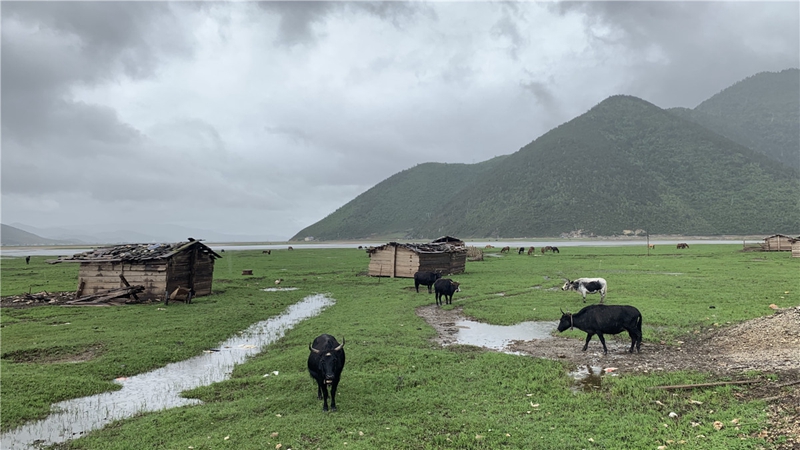
The Napa Lake is one of the biggest draws for visitors to Shangri-La, Yunnan province. [Photo by Fang Aiqing/CHINA DAILY]
An ethnic Tibetan has continued to develop new ways to showcase Shangri-La's traditional culture to visitors from around the world, Fang Aiqing reports.
Arro Khampa boutique hotel is located in Dukezong town in Yunnan province's Shangri-La. Its founder, 49-year-old ethnic Tibetan Dakpa Kelden, and his team ceremoniously greet guests with khata-silk scarves traditionally presented to visitors-to the soundtrack of a xianzi (a two-stringed bowed instrument) strummed by one of the employees.
The hosts start singing and dancing long before their guests arrive. It's natural in Tibetan communities, where a saying goes: "If you can talk, you can sing. If you can walk, you can dance."
It's so commonplace that outsiders often join in without reservation, even though they don't know the lyrics or moves, he says.
Dakpa Kelden is positioned between tradition and modernity in every sense. His hotel is located in an ancient quarter of the town (known as Dhokar Dzong in Tibetan)-an area that has been rebuilt in its original style after a 2014 fire incinerated several city blocks-while he wears a suit jacket over Tibetan attire, contrasting with his long hair and leather riding boots.
But he also stands at another crossroads-one where international cultures intersect.
He was born in India in 1970 and lived there until he relocated to Shangri-La at age 17. He later studied in Austria and the United States. Dakpa Kelden speaks Mandarin, Tibetan, English, Hindi, Urdu and Nepali.
This helps him to realize his mission of guiding people from various places and backgrounds around the scenic settlement named after the paradise British author James Hilton describes in his book, The Lost Horizon.
|






7740f3b5-9ecb-438e-9052-76cb2d4bb671.jpg)

